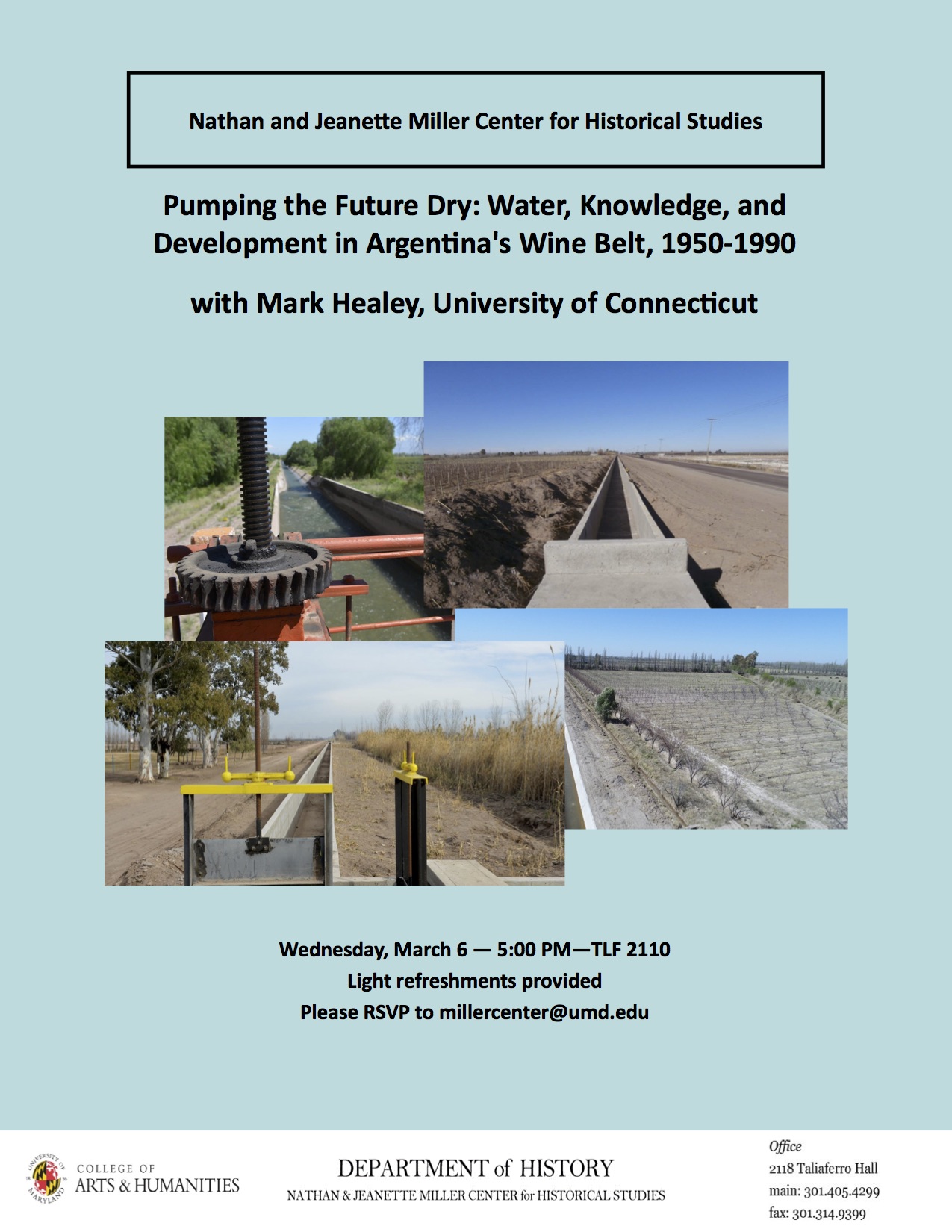Pumping the Future Dry: Water, Knowledge, and Development in Argentina's Wine Belt, 1950-1990

Pumping the Future Dry: Water, Knowledge, and Development in Argentina's Wine Belt, 1950-1990
Please join the Nathan and Jeanette Miller Center for Historical Studies for an afternoon lecture with Mark Healey. Light refreshments will be provided. Please RSVP to millercenter@umd.edu
This talk examines the relationship between water, political and technology in Argentina’s wine belt from 1950 to 1990, exploring how a state-led modernization project first expanded, then challenged, and finally undermined a century-old model of irrigated agriculture. Since the 1880s, an expanding network of irrigation canals had turned the drylands of western Argentina into the wine powerhouse of Latin America. But by 1950, the available surface water was nearly all appropriated, and the costs of wine monoculture were becoming clear. An easy answer seemed to be at hand: inexpensive new pumps would draw on abundant supplies of groundwater, enabling a further diversification and expansion of local agriculture. For promoters, making full use of groundwater would require dramatic state initiative, produce important scientific advance, and enable economic democratization. But after rapid early success, this attempted techno-political fix led first to deepening environmental and economic crisis and ultimately to the unraveling of the regional development model itself.

